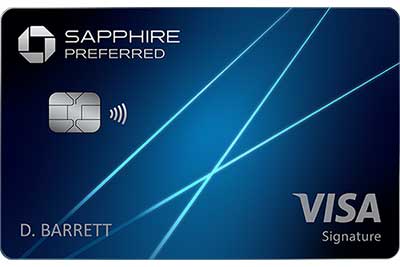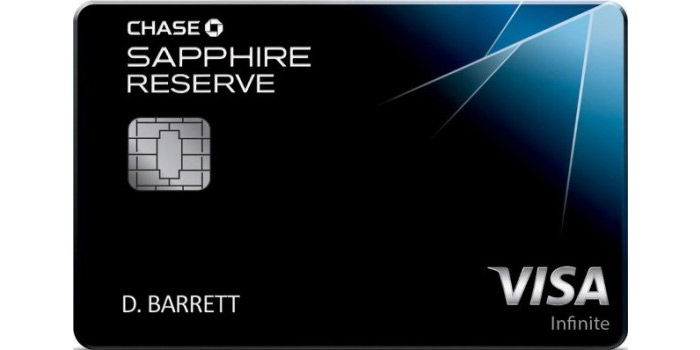The Chase Sapphire Preferred® Card is one of the most popular travel credit cards on the market. It offers strong rewards, flexible point redemptions, and a generous sign-up bonus—all with a manageable annual fee. But before you apply, it’s important to know what credit score is typically needed and how to increase your approval odds.

Recommended Credit Score for the Chase Sapphire Preferred
To qualify for the Chase Sapphire Preferred Card, you’ll usually need a credit score of 700 or higher. Most successful applicants fall in the 740+ range, which is considered excellent credit.
That said, credit score is just one part of the equation. Chase also reviews your income, credit history, existing debts, and how many credit cards you’ve opened recently. A strong, well-rounded credit profile gives you the best chance of getting approved.
What Chase Looks for Beyond Your Credit Score
Even with a solid credit score, other parts of your financial life can impact your approval odds. Here’s what else Chase takes into account:
- Income – You’ll need to show that you earn enough to comfortably manage new credit.
- Debt-to-income ratio – If you’re carrying a lot of debt compared to your income, that could raise a red flag.
- Payment history – Late payments, collections, or bankruptcies on your credit report can reduce your chances.
- Credit card history – Chase looks at your overall experience with credit, including how long your accounts have been open and how you’ve managed them.
How to Improve Your Chances of Getting Approved
If you’re aiming for the Chase Sapphire Preferred, taking a few extra steps can make a big difference.
Know Where Your Credit Stands
Before applying, check your credit score and review your credit reports from all three credit bureaus. Make sure there are no errors that could drag down your credit score.
Keep Credit Utilization Low
Try to use less than 30% of your available credit across all your accounts. Lower utilization shows that you’re not overly dependent on borrowed money.
Avoid Too Many Recent Applications
If you’ve applied for several credit cards or loans in the past few months, wait before applying again. Too many hard inquiries in a short time can hurt your credit score and make you appear risky to lenders.
Maintain a Strong Payment Record
On-time payments are the most important part of your credit score. Make sure all bills are paid on time, every time.
Stay Below Chase’s 5/24 Rule
Chase uses an informal rule called 5/24—if you’ve opened 5 or more personal credit cards (from any bank) in the past 24 months, your application will likely be denied. That includes most store cards and co-branded cards, so check your recent history before applying.
What to Do if You’re Denied
Getting denied doesn’t mean you’re out of options. If Chase turns you down, they’re required to send you a letter explaining why.
After reviewing the reason, consider calling Chase’s reconsideration line. You’ll be able to speak with a real person about your application and provide more context—like a recent income increase, a debt you just paid off, or an old negative item that’s no longer relevant.
Many applicants have successfully reversed a denial by being proactive and explaining their situation clearly.
Credit Card Alternatives If You’re Not Ready Yet
If your credit score is below 700 or you’re just getting started with credit, you might want to consider another card first:
- Chase Freedom Unlimited® – This card has slightly lower credit requirements and still earns valuable rewards. There’s no annual fee, and points can be combined with the Sapphire Preferred down the line.
- Secured credit cards – If you’re rebuilding credit, a secured card can help you establish a positive payment history and raise your credit score over time.
These alternatives can be a solid stepping stone until you’re ready to apply for a premium travel card like the Sapphire Preferred.
Need Help Raising Your Credit Score?
If negative items like collections, late payments, or charge-offs are holding you back, professional credit help could be worth considering.
Credit Saint helps people challenge inaccurate or outdated entries on their credit reports. They even offer a 90-day money-back guarantee, so you can move forward with confidence.
If you’re serious about improving your credit before applying, visit their website to learn how they can help.
Final Thoughts
The Chase Sapphire Preferred Card offers a strong mix of travel rewards, point flexibility, and premium perks—all with credit requirements that are achievable for many applicants.
To boost your chances of approval, aim for a credit score above 700, maintain a healthy credit history, and stay under Chase’s 5/24 limit. If you’re not quite there yet, work on improving your credit or consider starting with another Chase card.
With the right preparation, the Chase Sapphire Preferred can become a valuable part of your credit card strategy—and a smart way to turn everyday spending into travel rewards.



